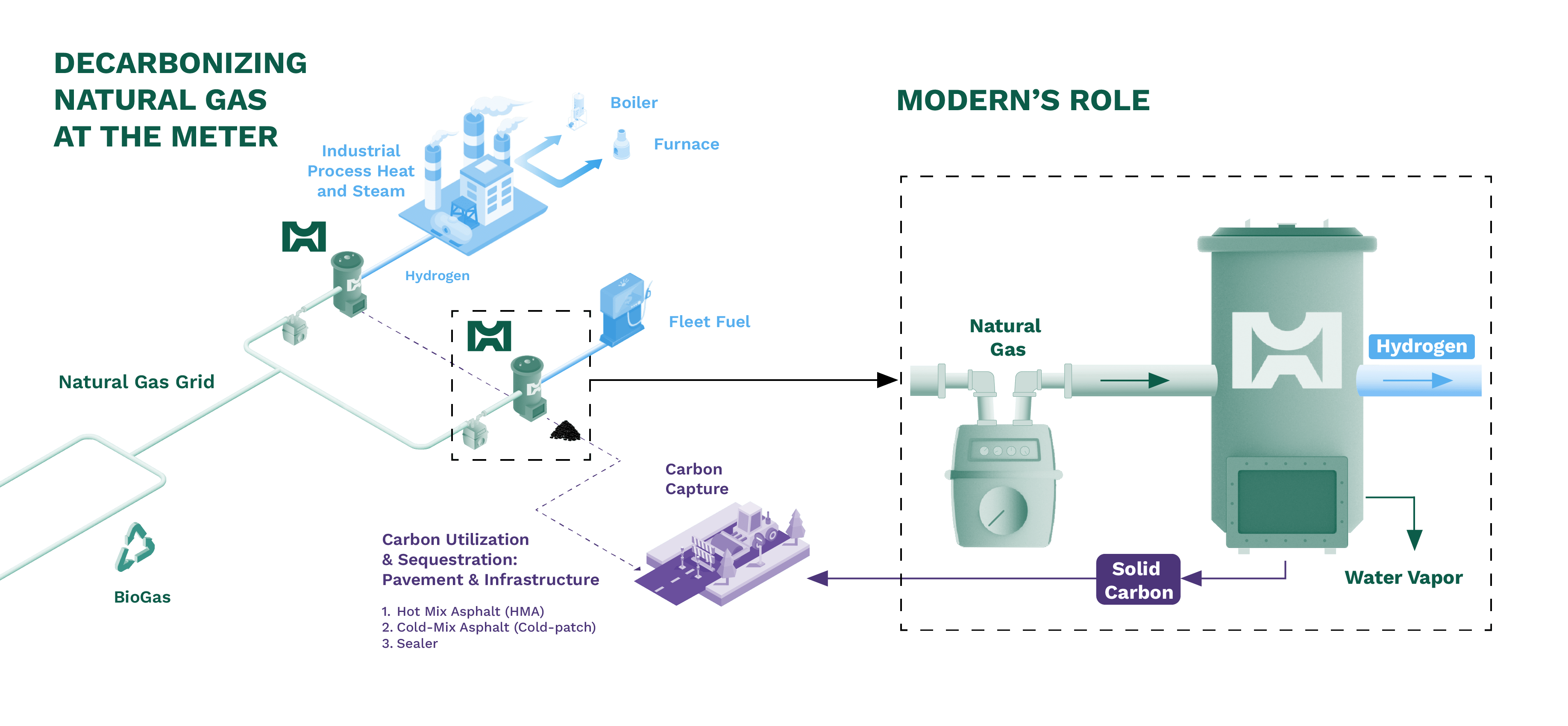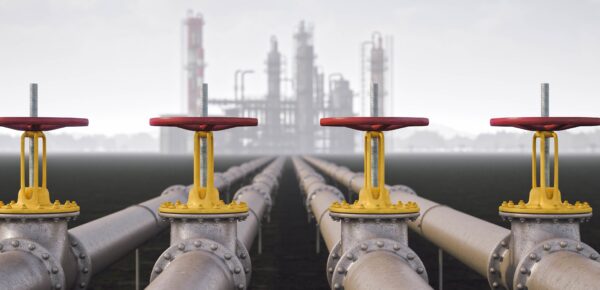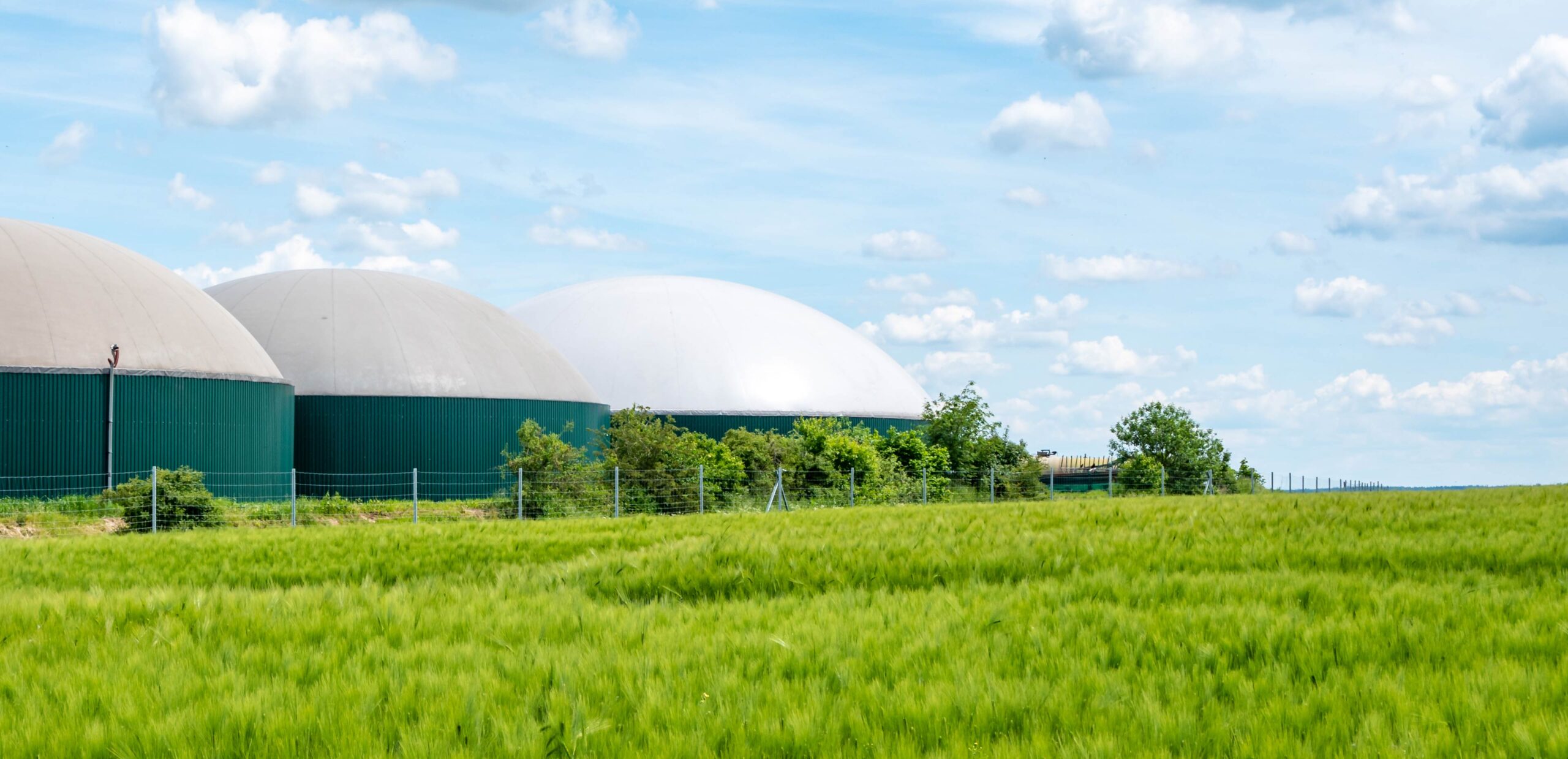What is Distributed Hydrogen?
Distributed hydrogen refers to hydrogen produced in small quantities close to the point of use. This approach enables hydrogen generation and delivery when and where it is needed.
This approach is in contrast to the traditional centralized producer models (e.g. "hubs") where only the largest buyers onsite (examples: petroleum refineries, steel manufacturers, ammonia producers, etc) have access to hydrogen generated onsite.
Distributed hydrogen production ensures that small-scale hydrogen consumers can take advantage of fuel and its benefits without any new infrastructure.
Theoretically, any category of hydrogen generation could be "distributed," but most existing hydrogen generation technologies are not economic at small scale.
Decarbonizing natural gas at the meter to generate clean hydrogen is Modern's distributed hydrogen solution.

"Infrastructure buildouts are measured in the scales of a lifespan, and we can't wait that long for the climate fight."
Tony Pan, CEO & Co-Founder of Modern Hydrogen
Happening Now
On-Site Hydrogen Generation
New technology is already making it possible to generate on-site hydrogen from conventional natural gas or renewable natural gas derived from biomass.
Specifically, Modern Hydrogen's technology decarbonizes gas into clean hydrogen at the point of use. We are creating a distributed hydrogen solution that avoids any need to build up new hydrogen infrastructure.
The Switch
Pivoting from Natural Gas to Hydrogen
Embracing distributed hydrogen technologies marks a transformative shift in our energy paradigm. Rather than relying on natural gas, we can now harness these advanced systems to produce hydrogen locally, streamlining costs and reducing emissions. This decentralized approach not only diminishes transportation hazards and expenses but also paves the way for a sustainable, hydrogen-powered future.


Collaborative Efforts
Hydrogen Hubs & Distributed Hydrogen Solutions are Both Necessary
"The hydrogen hub model is smart because hydrogen is one of the hardest fuels to transport and distribute. However, hydrogen hubs won't be everywhere. Not every factory in the country can and will relocate to a hub. Hubs are critically important, but for 90% of the rest of the country outside of the footprint of a Hub, you will need a distributed hydrogen solution. If you don't have one, that decarbonization is not going to happen within the timeline that customers need."
- Tony Pany, CEO & Co-Founder of Modern Hydrogen
Additional Resources:
The Future Is On-site Hydrogen Generation
Many see the future of hydrogen as a fuel rooted in the ability to generate it on-site. That’s partly because transporting and storing hydrogen today is expensive and challenging. The good news is that new technologies are already making it possible to generate hydrogen from conventional natural gas and renewable natural gas derived from biomass. […]
Distributed Hydrogen Systems Could Be The Key To Clean Energy Microgrids And Vehicle Fueling Stations
In the past couple of years, the conversation about hydrogen’s role in the decarbonization of the energy sector has shifted from how it can be done to when it will be done. Decarbonization goals, decreasing costs of renewable electricity, and improved integration into more significant renewables are driving the demand for hydrogen. This will soon […]


